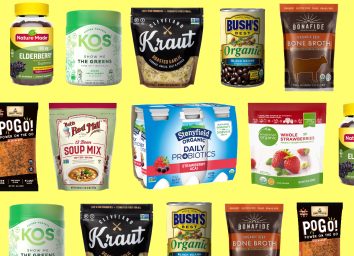Top 15 Nutrition Tips During Quarantine
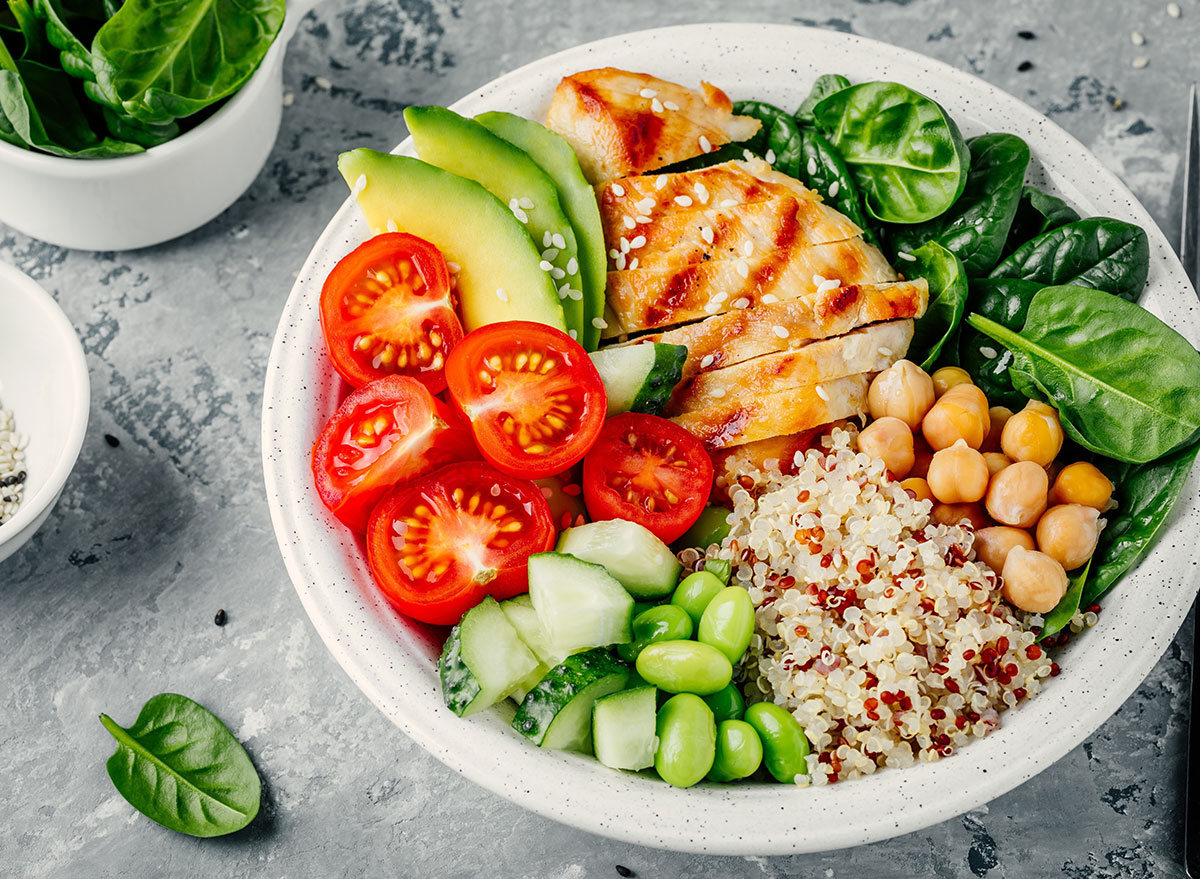
While staying at home is good in terms of slowing down coronavirus, it can absolutely cause a strain on our health. Staying mindful of how much food we're eating and how much we're moving our body is important at a time like this, especially if you're learning how to cook for yourself for the first time. Yet while these things are important, it can also cause anxiety. What does eating healthy for your body really mean? What are some of the healthy habits you should be cultivating right now?
To answer our questions, we turned to a few registered dietitians for their knowledge on how to eat healthier. Not just to lose weight (even though that's always a plus), but also to feel your best during this time. From healthy eating tips to tricks on how to stop snacking all the time, here's what a few of these experts had to say.
Make a schedule for yourself.

"Structure is key right now," says Rachel Paul, PhD, RD from Best Body. "Set times to wake up, start working, [times for] your meals and snacks, exercise, and going to bed."
Still meal prep for the week.
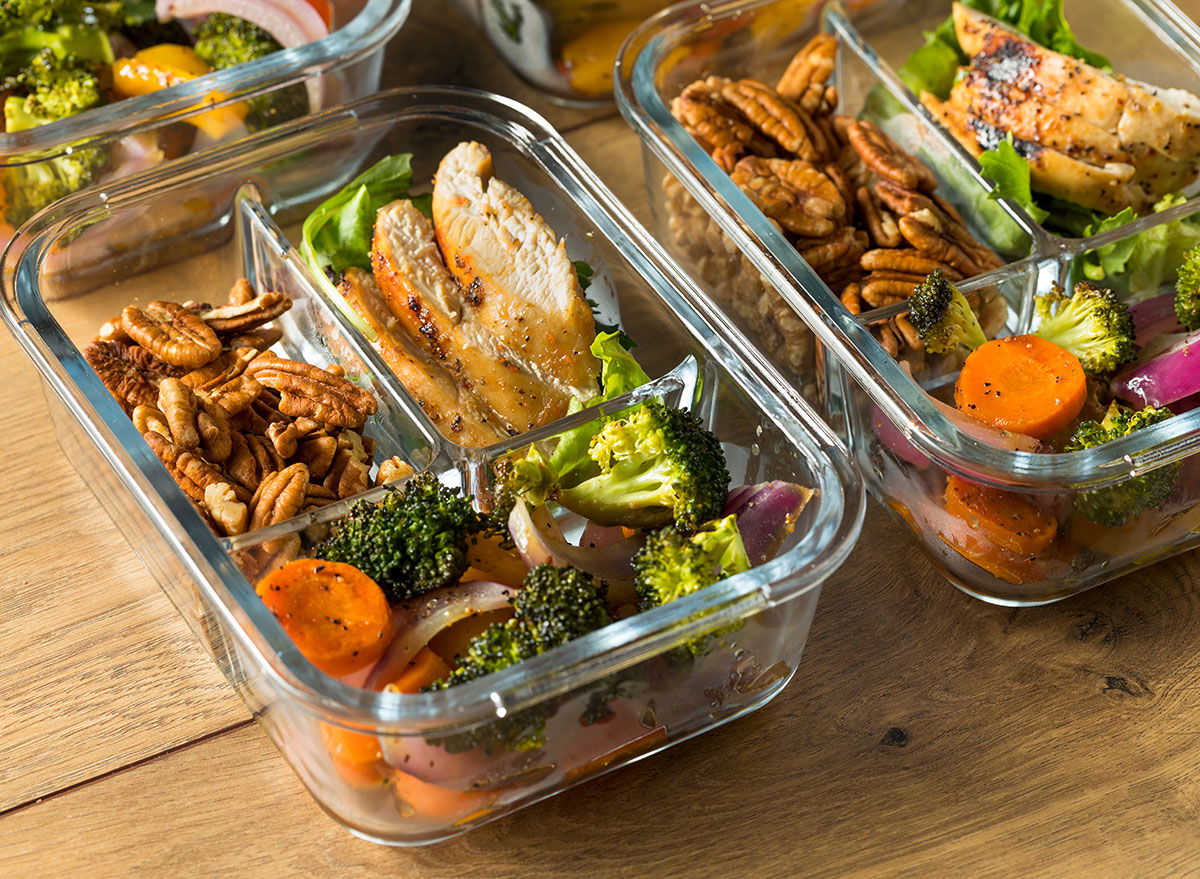
"You can still meal prep even if you're not leaving the house," says Paul. "Cut up veggies, cook your proteins and starches. Even if you want to actually make your meals right before you eat, doing this prep will make it easier to choose a healthy option. Do this on Sundays and Wednesdays to keep your food fresh."
Use a formula for your meals.
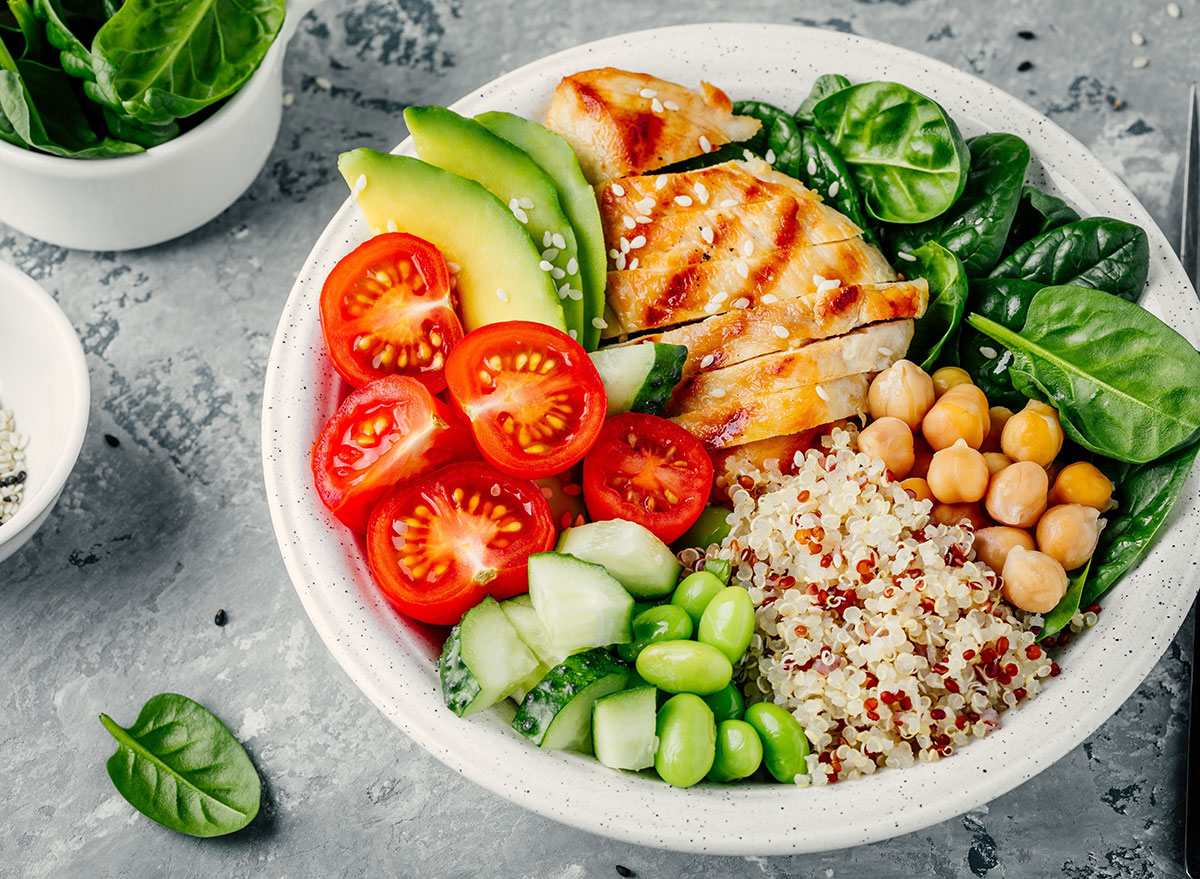
"Try to build your meals and snacks around a vegetable, protein, and source of starch," says Casey Seiden MS, RD, CDN, DCES. "When possible try to order and purchase complex sources of carbohydrates, so think whole wheat or chickpea-based pastas, brown rice, beans, quinoa, farro, or oatmeal. All types of vegetables can work- fresh, canned, and frozen! For proteins, freezing chicken, turkey burgers, beef, and fish is a good way to preserve fresh purchases, but having eggs, cheeses, and canned fish can be excellent sources as well."
Listen to your hunger signals.

"I think another thing many of us struggle with is how often to eat, and my best advice is to use this time to try to tune into your hunger signals," says Seiden. "If you find yourself eating more mindlessly without feeling physically hungry, try to have other non-food related activities you can participate in, such as reading, journaling, organizing the house, or painting your nails."
Sip on green tea.
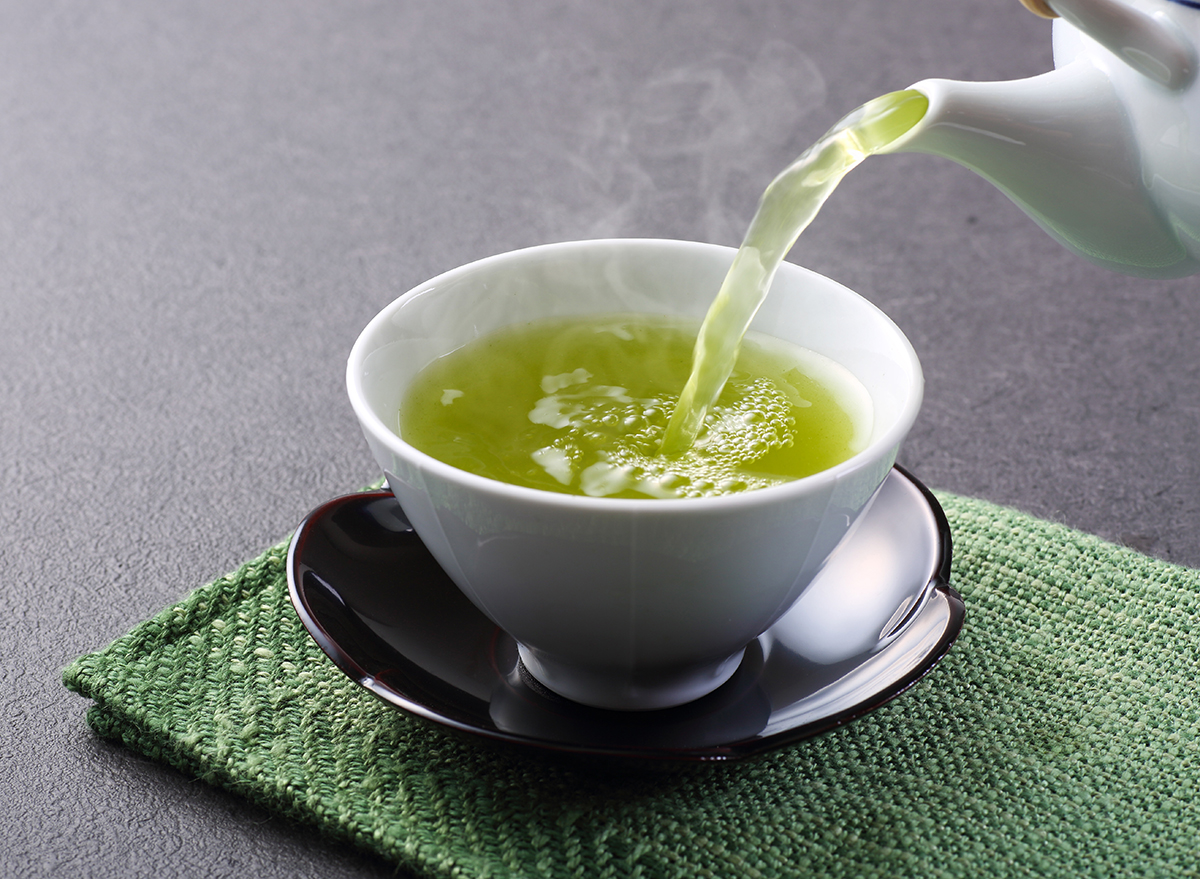
"Consider sipping on green tea throughout the day," says Crystal Cascio, RDN and Health Coach for the Anticancer Lifestyle Program. "Green tea is rich in epigallocatechine gallate (EGCG) which has been found to have antiviral activity, and has anti-inflammatory properties to keep your immune system healthy."
Eat your fruits and vegetables.
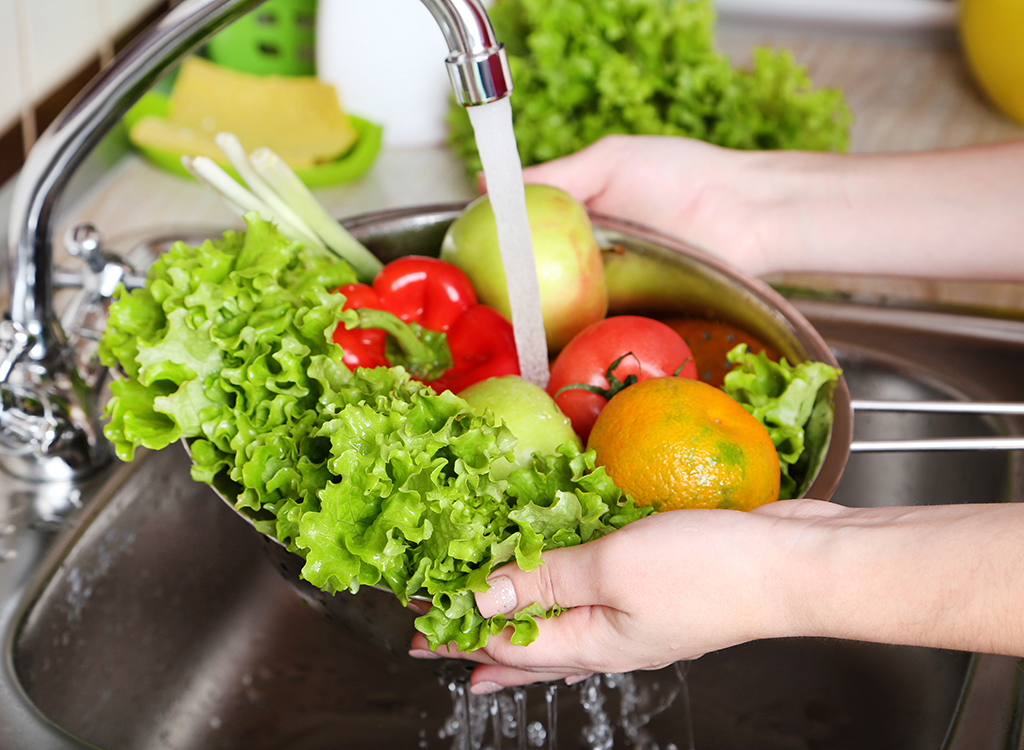
"I know you've heard this many times over however, I cannot stress this enough during quarantine," says Cascio. "Fruits and vegetables contain flavonoids—beneficial plant-based compounds—which can help you lower inflammation. Inflammation plays a role in many, if not all, of diseases and illnesses. Flavonoid rich fruits and vegetables include, and are not limited to, the following: Apples, onions, tomatoes, oranges, nuts and seeds, berries, green leafy veggies, herbs such as parsley, celery, etc. Turmeric and green tea are also rich in flavonoids."
Cascio recommends you eat 5 to 7 servings of vegetables a day, and 2 to 3 servings of fruit. She says vitamin C rich foods, in particular, are a great place to start. "Fruits and vegetables high in vitamin C include citrus fruits, red bell peppers, green bell pepper, strawberries, tomatoes, brussels sprouts, broccoli, cantaloupe, cauliflower, spinach, and green peas," says Cascio.
Keep fresh or frozen vegetables on hand.
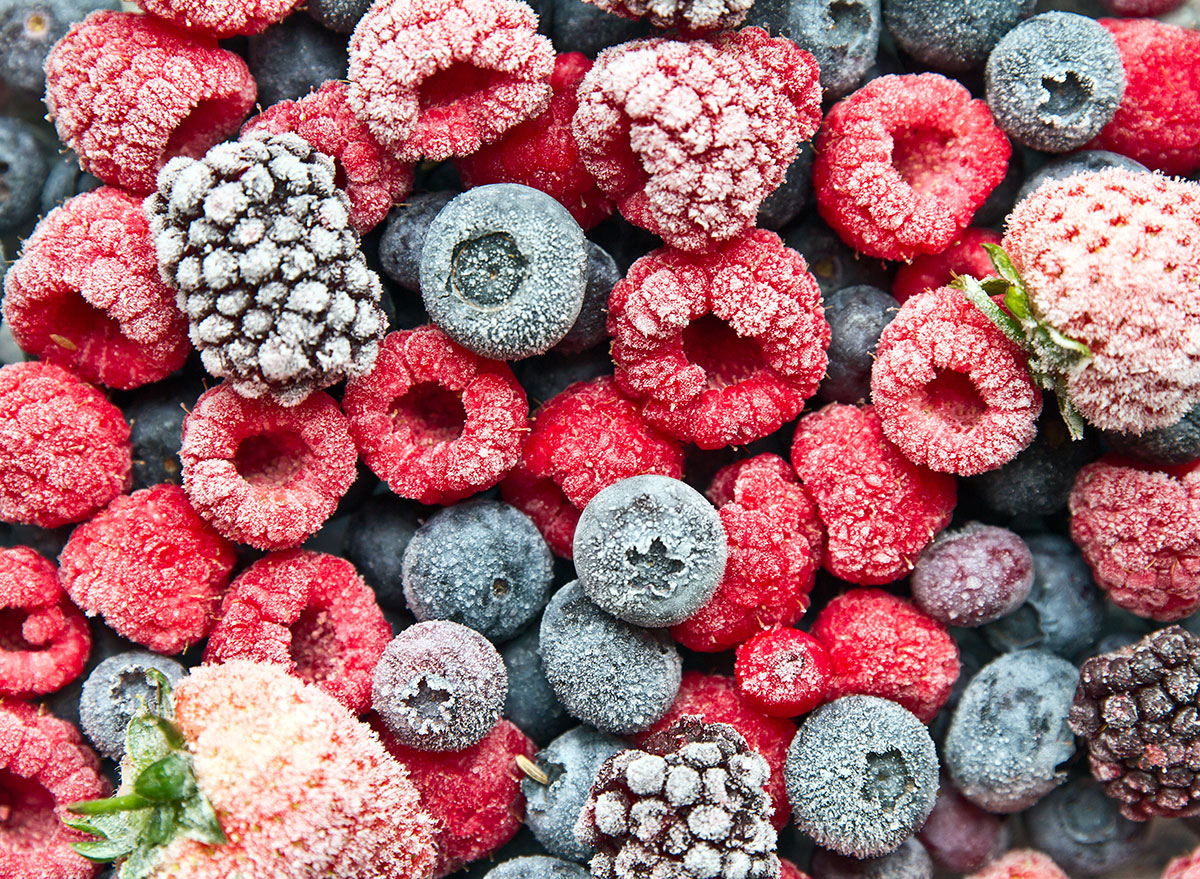
"One of the easiest things to do to boost nutrition and improve your body's immunity is to keep fresh or frozen vegetables on hand to steam and toss into any meal," say The Nutrition Twins Lyssie Lakatos, RDN, CDN, CFT and Tammy Lakatos Shames, RDN, CDN, CFT. "If neither of those are available, low sodium and no sodium added canned veggies can work too (and as an alternative, you can rinse salt off regular canned vegetables). If you're making or ordering in Italian, Mexican, Chinese, American, or any other cuisine, there's no easier way to ramp up fiber, antioxidants, phytonutrients and vitamins then to do this. Using kitchen staples like eggs, pasta or rice, you can add the veggies to omelets, burritos, pizzas, pastas, soups, casseroles, stir-fries and more."
Put your oil in a spray bottle.
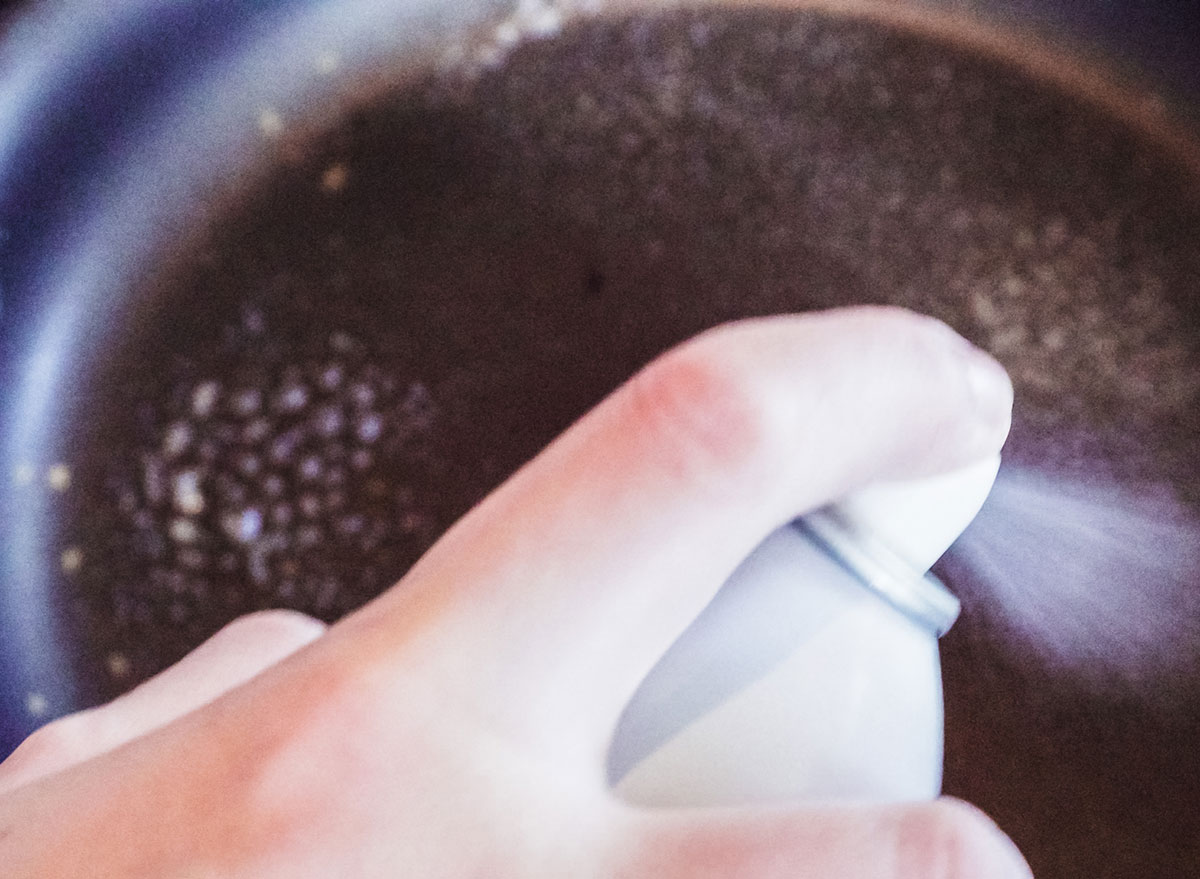
"Many people have olive oil in their pantries and they pour this heart-healthy oil liberally into their pans for cooking and on their salads without thinking about it," say The Nutrition Twins. "Each tablespoon adds 120 calories, so it's easy to add upwards of 500 calories in a day from oil, which could result in a pound of weight gain each week. Simply spritzing the oil on food can prevent 5 pounds from accumulating on a person's waistline over the course of a month. If you're looking to lose a few pounds, this small change can make a big difference."
Don't let your produce spoil.
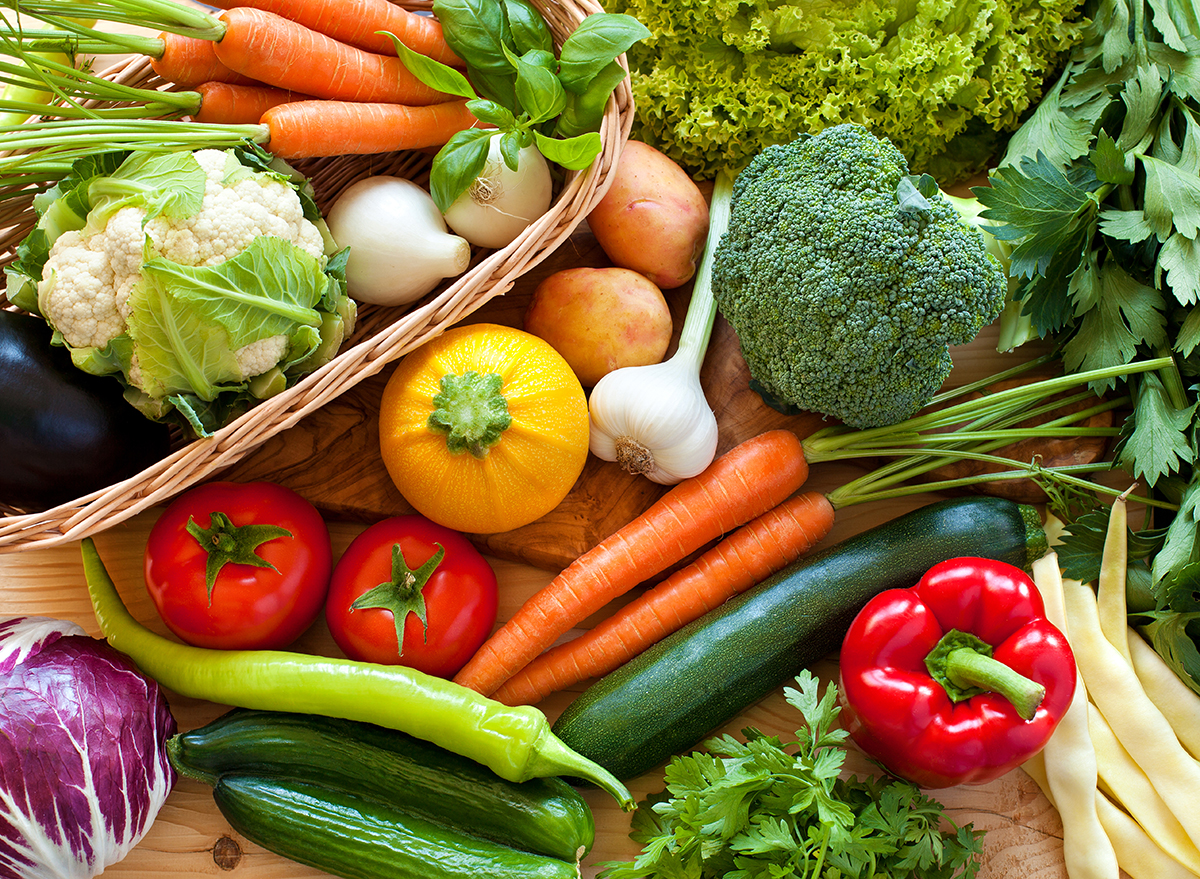
Have fresh produce that is reaching its last leg? Jeni Hollifield, RDN at HealthyGroceryGirl.com recommends throwing it in something you're cooking. "Add your produce that is about to spoil into stir fries, soups or roast in the oven for a quick side!
Work away from your kitchen.

While it's tempting to work near your snacks all day, try to avoid it by setting up a place to work outside of your kitchen. "To avoid snacking all day long, keep with a regular food schedule and make sure to work in a room away from the kitchen," says Hollifield.
Add in some zinc-rich foods.
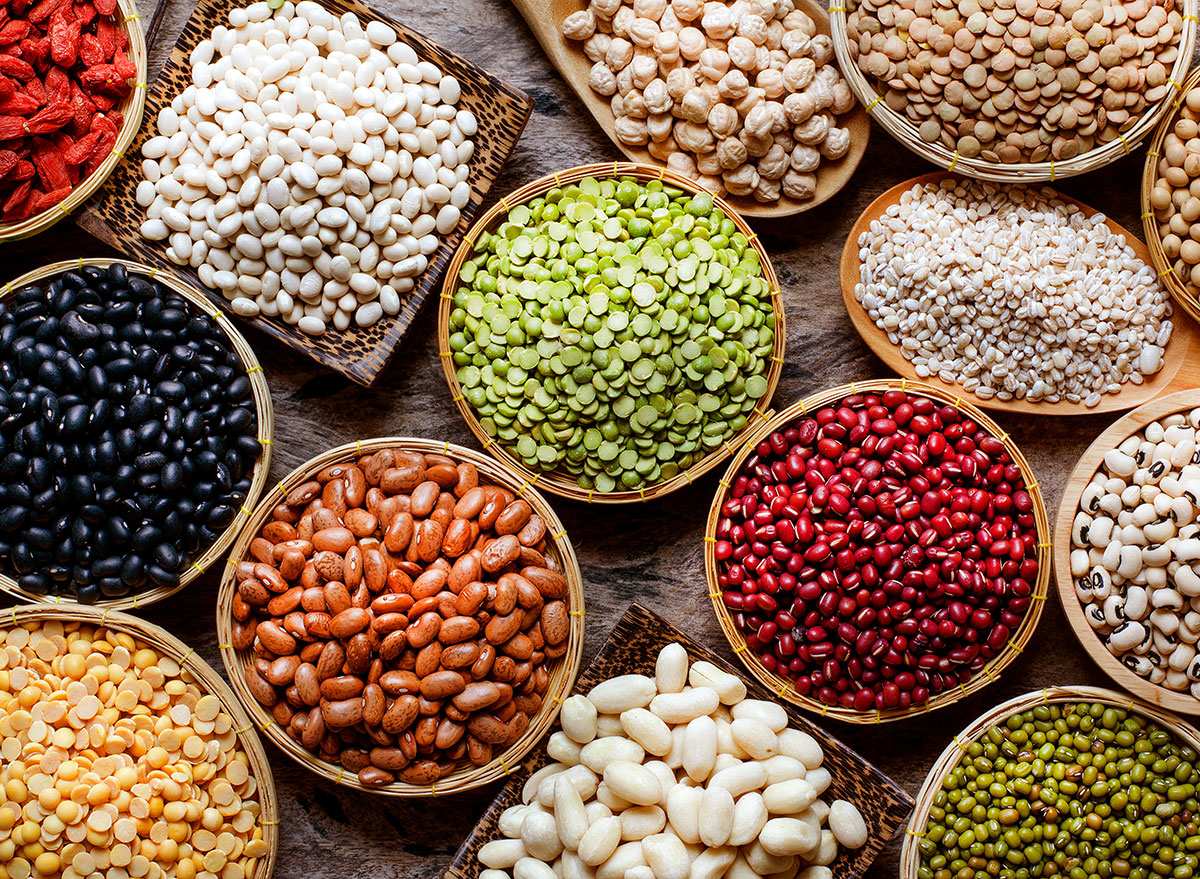
"Zinc is a micronutrient that is essential for immune health including having antiviral properties," says Cascio. "Consider eating zinc rich foods including beans, plain yogurt, almonds, pumpkin seeds, cashews, whole grains such as oatmeal, peas, and fish. Zinc is also found in other animal based foods including lean meats such as poultry. Aim to get most of your zinc from plant sources, as they will provide you with other beneficial compounds for immune health found in plants such as flavonoids. You can also use zinc lozenges which may provide protective effects for the upper respiratory tract."
Drink bone broth.
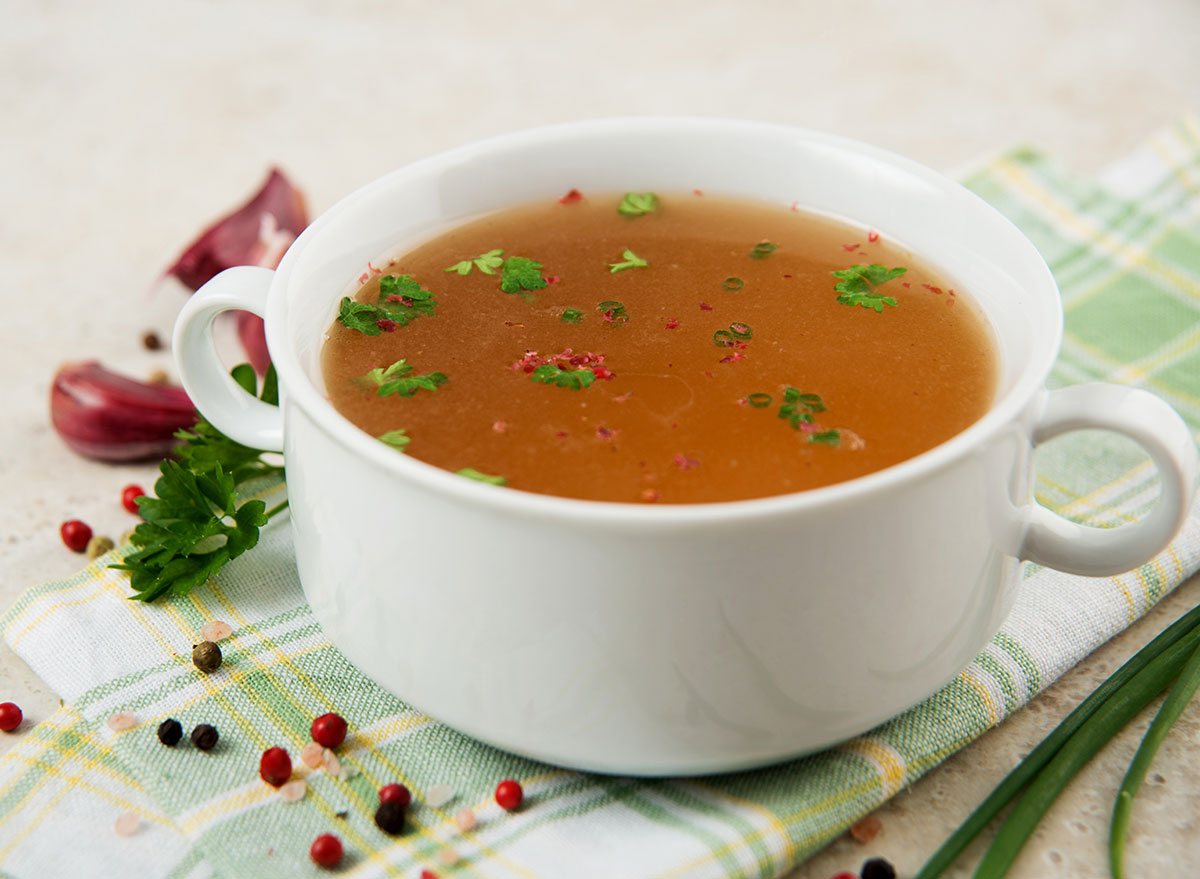
"Bone broth is becoming very popular but has been around for thousands of years," says Jan Wellmann, an Integrative Nutrition Health Coach (INHC) with certification from the Institute for Integrative Nutrition. He is also the co-founder and CEO of WaveLife Technologies USA. "It is filled with collagen, which supports digestion and gives our immune system a boost. The gelatin in the bone broth repairs our intestinal lining and reduces inflammation."
Eat fermented foods.
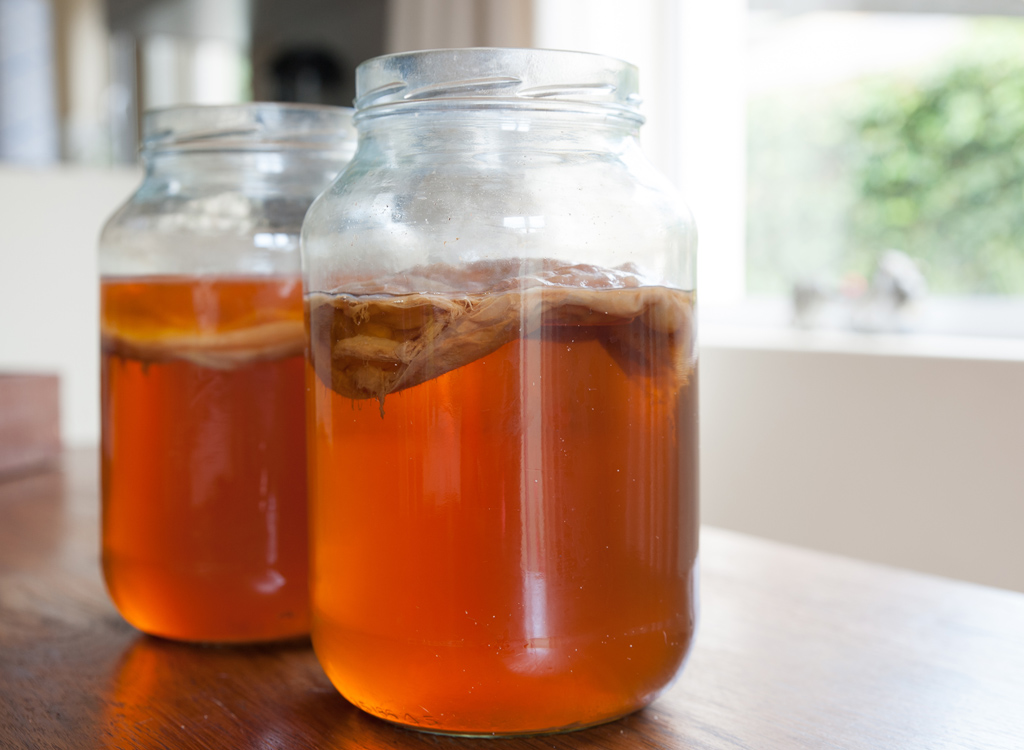
"Fermented foods augment antibodies to help protect and fight diseases, thus providing a boost to our immune system," says Wellmann. "The existing flora acts as a protector to the small intestines and also produces antioxidants that cleanse our bodies and improve digestion." Wellmann suggests consuming fermented food and drinks like kombucha, sauerkraut, and tempeh.
Add in some healthy fats to your diet.
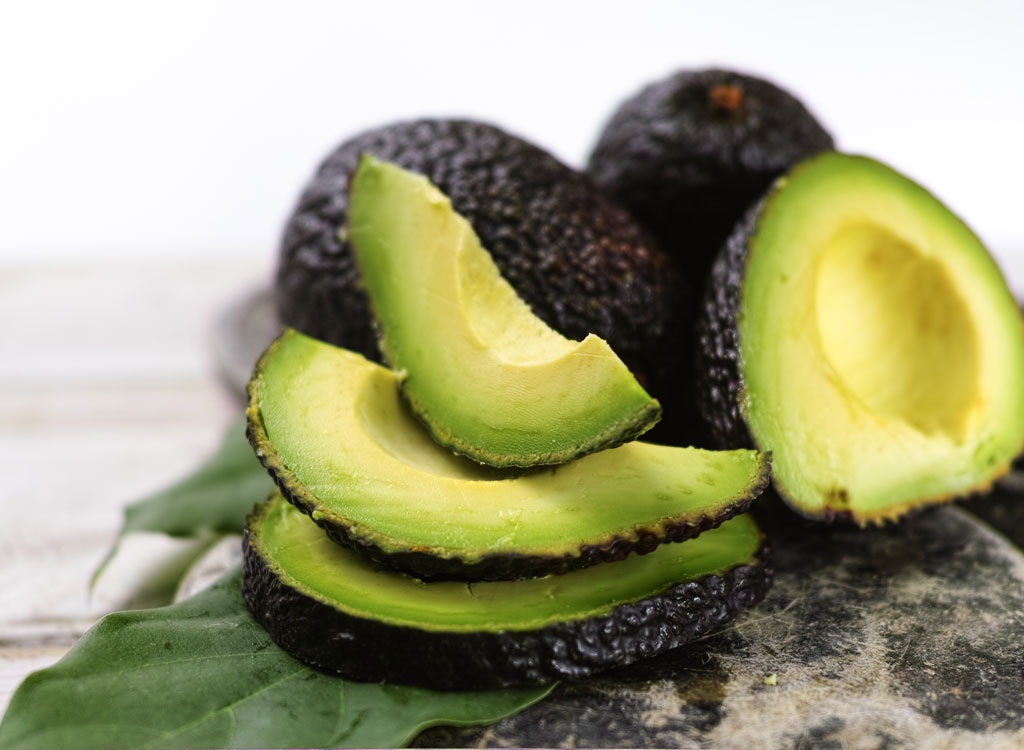
"Focus on healthy fats such as avocados, nuts, olive oil, coconut oil, ghee, fish, grass-fed, pasture-raised meats, and fresh whole foods whenever possible during self-isolation," says Wellmann. "Don't forget to hydrate heavily with water."
Integrate whole grains into your meals.
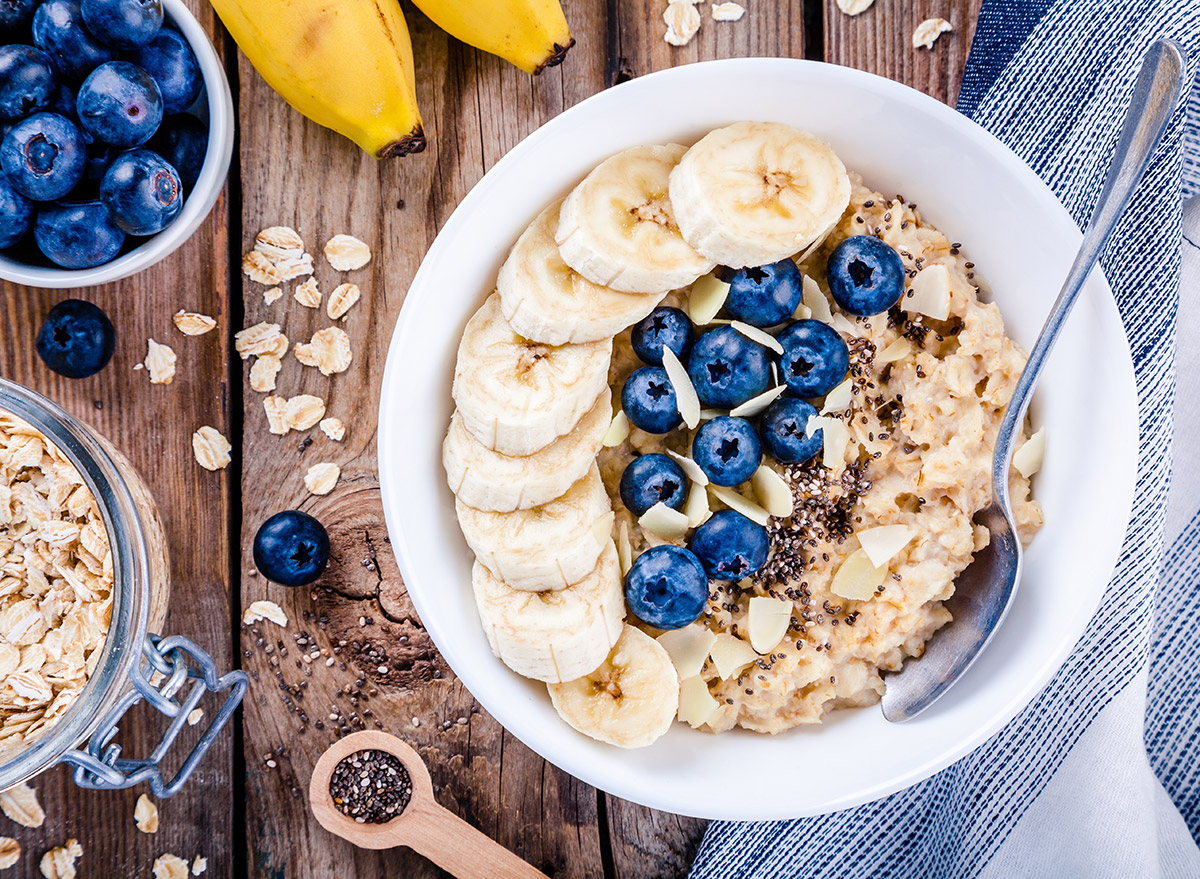
"Dry goods like oatmeal, lentils and whole-grain pasta and cereals can be great sources of fiber, iron, and magnesium, and some cereals are also fortified with Vitamin D," says Susan Bowerman, MS, RD, and Sr. Director for Worldwide Nutrition Education and Training at Herbalife Nutrition. "The most important feature is to ensure that you're buying "whole grain" to get the full benefit, so read labels carefully."
